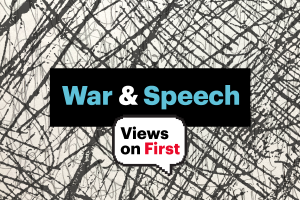The University of Pennsylvania recently announced new protest guidelines that have sparked controversy among students and faculty. One particularly contentious rule prohibits the establishment of encampments on campus grounds during protests. The administration justifies this decision as a measure to ensure the safety and security of all members of the UPenn community.
In recent years, protests and demonstrations have become increasingly common on college campuses across the country. Many students exercise their right to free speech by organizing marches, rallies, and sit-ins to advocate for various causes. Encampments, in particular, have been a popular form of protest, as they allow participants to maintain a constant presence and draw attention to their message over an extended period of time.
However, the administration at UPenn has decided to crack down on this practice due to concerns about health and safety. Encampments can create unsanitary conditions, attract unwanted attention from outsiders, and disrupt the normal functioning of campus facilities. In extreme cases, encampments have led to confrontations with law enforcement and resulted in damage to property.
While the new guidelines explicitly prohibit encampments, they also outline alternative methods for protesting that are considered more conducive to the overall well-being of the campus community. These include utilizing designated free speech zones, coordinating with campus security and local law enforcement, and adhering to time limits for protests and demonstrations.
Some students and faculty members have expressed disappointment and frustration over the ban on encampments, arguing that it limits their ability to effectively express their views and bring about change on campus. They believe that encampments are a powerful tool for raising awareness and holding the administration accountable for their actions.
On the other hand, supporters of the new guidelines argue that the safety and security of all members of the UPenn community should be the top priority. They believe that the administration is taking necessary steps to prevent potential conflicts and ensure that protests are conducted in a peaceful and respectful manner.
The debate over the ban on encampments at UPenn highlights the ongoing tension between free speech rights and the need to maintain order and safety on college campuses. As protests continue to play a prominent role in shaping public discourse, it is crucial for universities to strike a balance between allowing for open expression and ensuring a safe and inclusive environment for all members of the community. It remains to be seen how the new guidelines will be enforced and how they will impact the future of protest culture at UPenn.



